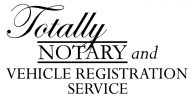An “apostille” is a form of authentication issued to a public document that has been signed for use in another country.
Public documents, such as birth certificates, marriage certificates, judgments, corporate records, patents and notarized acknowledgments are frequently sent for use abroad and prior to 1961, went through a slow and costly process called legalisation. Legalisation involves authentication in the originating country as well as the Embassy or Consulate of the destination country.
To streamline the process, a treaty, The Hague Convention Abolishing the Requirement of Legalisation for Foreign Public Documents was drafted on October 5, 1961 at the Hague Conference on Private International Law.
It allows participating countries to designate Competent Authorities to authenticate public documents in the country of origin and eliminates the need for additional authentication provided the document is for use in another participating country.
The country of destination determines if the document is authenticated with an apostille or requires certification through legalisation. A list of countries that accept apostille is here.
As a participating country, the United States has three levels of Competent Authority; Federal, U.S. Courts, and State.
The origin of the document determines which level authenticates it.
Federal authentications are conducted through the U.S. Department of State Authentications office. This agency authenticates Federal executive branch documents such as FBI background checks.
U.S. Court authentications can be conducted by the Clerks and Deputy Clerks of the Federal Courts, or as an alternative, the U.S. Department of Justice can authenticate the seal of the Federal court and then the U.S. Department of State Authentications Office will place an apostille over that seal.
State authentication is most often conducted by the Secretary of State office, as it is in California.
There are two regional offices for the California Secretary of State: Sacramento and Los Angeles.
The Secretary of State authenticates signatures only on documents issued in the State of California signed by a notary public or the following public officials and their deputies:
- County Clerks or Recorders
- Court Administrators of the Superior Court
- Executive Clerks of the Superior Court
- Officers whose authority is not limited to any particular county
- Executive Officers of the Superior Court
- Judges of the Superior Court
- State Officials
The process of obtaining an apostille is relatively simple. It can be done by mail or in person.
If by mail, the original document in question is submitted to the appropriate competent authority with applicable fees and return postage, and after authentication, the document and apostille certificate is returned to the sender.
Walk-in service is available at the Sacramento and Los Angeles offices Monday – Friday from 8:00am – 4:30pm on a first come, first serve basis.
Do you have urgent need for an apostille?
Totally Notary now provides expedited apostille document service. Call for details!
©2015 Totally Notary All Rights Reserved


Leave A Comment